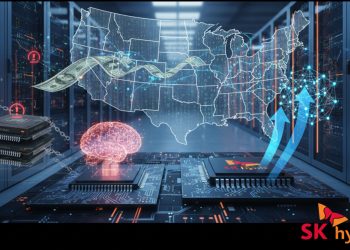The South Korean government has unveiled plans to allocate 4 trillion won ($2.9 billion) by 2030 to build a national artificial intelligence (AI) computing center. Amid growing global competition in AI infrastructure, especially from nations like the United States, South Korea seeks to strengthen its technological expertise and secure its position in the competitive landscape.
The Ministry of Science and ICT, alongside other agencies, unveiled an AI Innovation Ecosystem Plan. The plan focuses on boosting AI infrastructure, developing core AI technologies, fostering AI talent, and strengthening essential systems such as finance and taxation.
Additionally, regional AI hubs will be established to drive innovation nationwide. This comprehensive approach aims to bridge the gap with global tech leaders, such as Meta and Microsoft, who currently dominate the AI landscape with a far larger pool of high-performance GPUs. While South Korea possesses just 2,000 GPUs, the government is working to secure more through a state-led initiative, which will eventually support the planned AI computing center.
The government has introduced an AI-exclusive loan program to further strengthen the country’s AI capabilities as part of its broader 17 trillion won semiconductor loan initiative. This program is designed to encourage private investments in AI infrastructure.
Also, funding for AI-related R&D, particularly in sectors like semiconductors and services, will increase from 900 billion won this year to 1.1 trillion won by 2025. This funding boost is expected to accelerate the development of core AI technologies and solutions, helpinxg South Korea catch up with global competitors.
South Korea’s AI budget is set for a significant boost. The government will increase funding from 1.4 trillion won this year to 1.8 trillion won in 2025, marking a 25% rise.
To ensure alignment with its strategic goals, the government plans to collaborate closely with the National Assembly during the budget review process, aiming to secure additional funding for AI-related initiatives. This funding increase will support the development of critical AI infrastructure, including the AI computing center and the country’s efforts to reduce the AI performance gap with global competitors.







